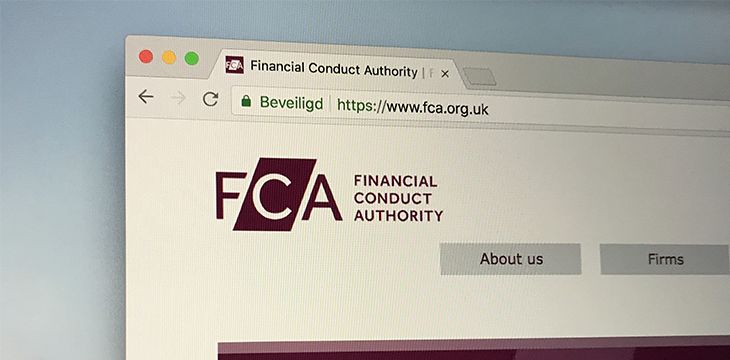The U.K.’s financial watchdog has assumed more oversight responsibility over the cryptocurrency industry in the country. The Financial Conduct Authority (FCA) is charged with ensuring crypto companies adhere to know-your-customer (KYC) and anti-money laundering (AML) regulations.
The FCA has been actively involved in bringing order to the crypto industry, and its new role, it will become even more involved with crypto. In its announcement, the regulator laid out the stipulations it will require from crypto companies. These include identifying and assessing the risk of money laundering and terrorist financing their business is exposed to.
Crypto companies will also be required to appoint a member of the board to be responsible for money laundering and terrorist financing oversight, depending on the size and scope of the business. They must also have “policies, systems and controls to mitigate the risk of the business being used for the purposes of money laundering or terrorist financing.”
Crypto money laundering has been a genuine concern for many regulators. This has seen a majority of these regulators adopt a wait-and-see approach, denying cryptos the global reach they should have. In 2019, several people were brought to book for using crypto to launder millions of dollars, including the operators of OneCoin, the North Korean government, several dark web users and more.
To ensure cryptos aren’t abused to launder money, the FCA will require firms to put in place enhanced due diligence when dealing with clients who pose higher money laundering risk. They must also monitor all transactions continuously to ensure “that transactions are consistent with the business’s knowledge of the customer.”
The FCA will also require any new crypto business to register with it before offering any services in the U.K. Existing businesses which were in operation before January 10 this year will be allowed to continue with business. They must, however, ensure that they comply with anti-money laundering laws.
The regulator remarked, “All existing businesses undertaking crypto-asset activities must be registered by January 2021. To ensure this deadline is met, these businesses must submit a completed application for registration via Connect by June 2020. Existing Financial Services and Markets Act firms, e-money institutions or payment services businesses undertaking crypto-asset activity will also be required to apply for registration.”
The U.K. has been stringent when it comes to crypto money laundering, drafting an economic plan to crack down on the vice last year. The country’s HM Treasury and Home Office departments partnered on the initiative, boldly claiming in a statement that “criminals will have nowhere left to hide their ill-gotten gains.”
New to blockchain? Check out CoinGeek’s Blockchain for Beginners section, the ultimate resource guide to learn more about blockchain technology.








